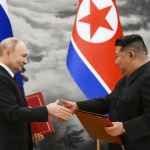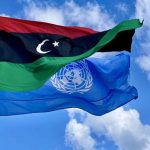It is impossible to predict what the situation will be like by the time this article reaches readers.
What I know now, as I write this, is that on Friday, 24 November, at 7:00am, the first truce in the fifth Gaza war went into effect. It provides for only a four day pause in hostilities though it gives Israel the right to use its air force in northern Gaza apart from only six hours when the roar of warplanes falls silent.
Relief workers and agencies will be racing against the clock to deliver hundreds of trucks’ worth of food, medicine, fuel, and other basic needs and to transport the wounded and ailing from Gaza to hospitals outside the Strip through the Egyptian crossing at Rafah.
Under the agreement, Hamas and its allies will release 50 hostages over the four days in exchange for 3,000 Palestinian prisoners.
The priority will be given to women and children. The agreement opens a window for an extension, if only for a few days, if Hamas releases more hostages.
Israel has said that it would extend the truce for one day for every ten hostages released. However, there are no guarantees here. Various unignorable factors propel the situation towards a resumption of fighting at an even fiercer pace than we have seen so far.
The Israeli government agreed to the humanitarian pause very grudgingly. It had to resist the objections of extremist religious parties that make up that government and it openly acknowledged that it had yielded to outside pressures, especially from the US. It said that it would use the time to prepare for the next round.
Hamas wanted a longer truce to be better prepared for the next round in which it will try to take advantage of urban guerrilla tactics in the towns and cities Israeli forces have entered.
It will be very difficult for heavy Israeli armoured vehicles to negotiate the narrow streets which are obstructed by the rubble of the bombed residential structures. They will be easy targets for antitank weapons. For both sides, then, the brief pause is an opportunity to ready themselves for more fighting. Meanwhile, while the international community welcomes the truce, it has not included two fronts: the one with Hizbullah to the north of Israel and the one with the Houthis in the southern Red Sea.
Whatever took place behind the scenes in the past few days, undoubtedly fervent efforts were made to prolong the truce or negotiate a new one after it ends. There were several truces during the first Arab-Israeli War in 1948 until finally the last one held, and the war ended. If both sides in the current war are determined to keep fighting, the political and diplomatic realities have changed considerably from how they stood at the outset of the war. In the six weeks since 7 October, there were four main developments.
First, sympathy for the Palestinian cause has gained great momentum and is seen as the key to achieving stability in the Middle East. This reflects an unprecedented quantum shift in international public opinion and among the international community, a shift that took place both inside and outside the Western world.
Second, the fighting on the ground has not given Israel the decisive result it sought. It did not free the hostages and it did not destroy Hamas. As in all cases of asymmetric warfare, the type of battle deprives the strongest side of victory and hands the weakest side victory by dint of not being defeated. We saw this in Vietnam, Afghanistan, Algeria and even in the American revolution against British colonial rule.
Third, many mechanisms are now in place to build negotiating bridges not just to promote new truces, but also to resolve the Palestinian-Israeli conflict based on the two-state solution, which all permanent members of the Security Council agree on, including the US. Equally important is the gap between the US and Israel over the two-state solution and, more immediately, over how to deal with Gaza after the cessation of hostilities.
Israel has insisted that it would remain in the Strip indefinitely and possibly rebuild its settlements there. Washington has made it clear that the Palestinians should run Gaza, most likely through the PLO and the Palestinian Authority (PA), with Arab and international support.
Fourth, Arab countries have been far from idle during this fifth Gaza war. As the combat intensified, resulting in more and more casualties, Egypt hosted a peace conference that resulted in a joint statement by the nine participants (the six Gulf Cooperation Council countries, Egypt, Jordan, and Morocco), strongly condemning the targeting of civilians by both sides and calling for the rehabilitation of the PLO and PA as the sole legitimate representative of the Palestinian people.
This led to the extraordinary Arab-Islamic summit in Riyadh, which adopted the statement from the summit in Cairo and added mechanisms to bring the matter to the UN Security Council and to bring Israel’s violations of international humanitarian law to the International Criminal Court.
The common theme in all these actions was the need to deal with the consequences of the current hostilities and to mobilise action to avert a repetition of this tragedy through a genuine peace process that sets a course towards the establishment of an independent Palestinian state.
The Arab actions from the Cairo to the Riyadh summits display a proactive approach in which the Arabs strive to take the Palestinian question into their own hands in the framework of a system of regional security.
This would entail a solution to the Palestinian question through the creation of an independent state and a solution to the Israeli question through genuine peace, enabling Israel to integrate into the region, shed its religious and racist extremism and belligerency, and join others in the spirit of regional cooperation, development and shared hopes for peace and prosperity.
This article first appeared on Ahram Online on November 28 and a version of it appears in print in the November 30, 2023 edition of Al-Ahram Weekly.












